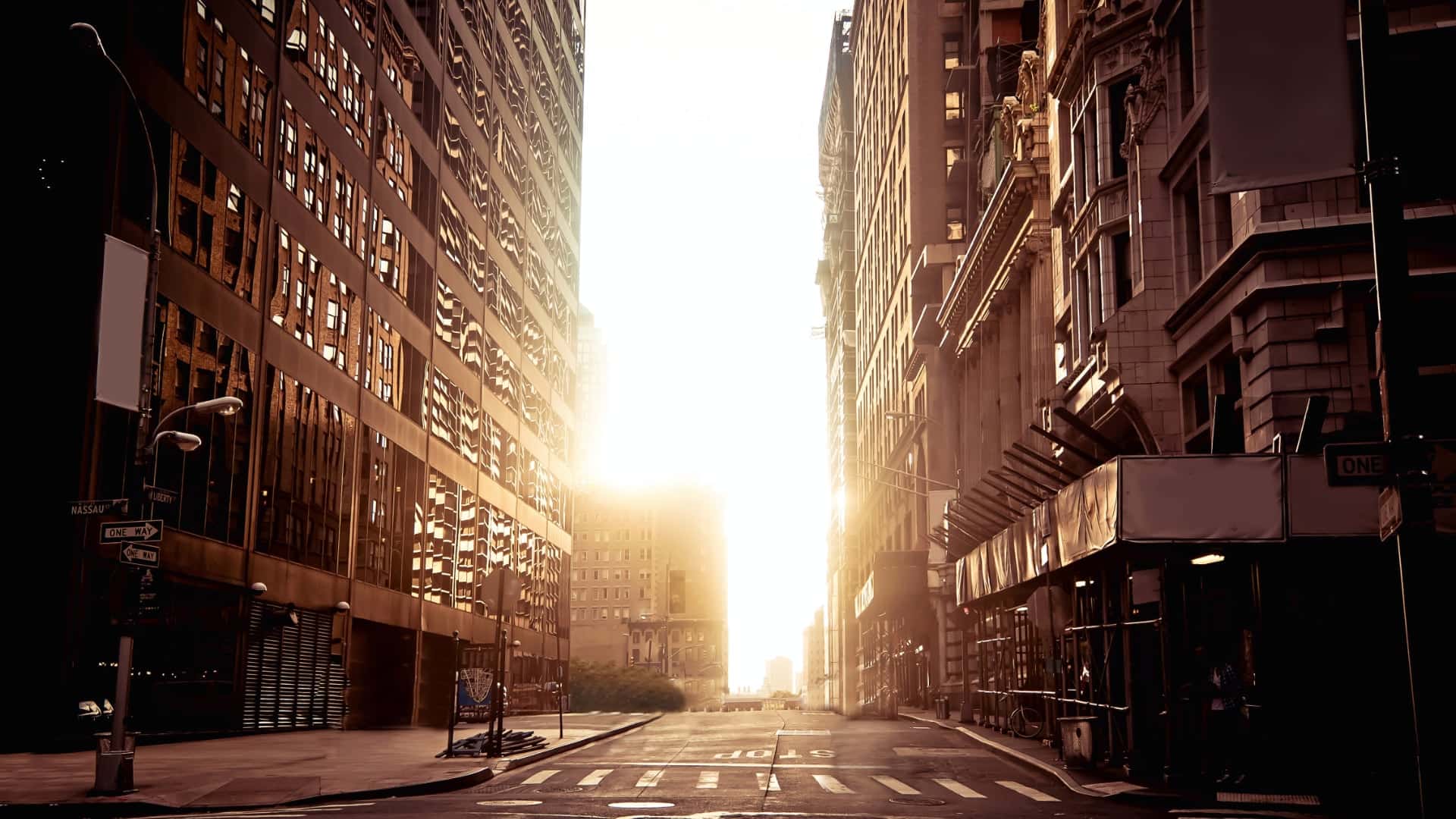Confessions of a People-Watcher (Ecclesiastes 4:1-16)
- this past week we’ve had our first really nice weather of the year
- which means that that great Canadian sport can finally begin: people-watching
- you know what I mean
- I’ve seen some of you
- some people quietly sit back from a scene, in a crowded room for instance, not doing anything but silently observing human behavior
- some people are less obvious
- I once lived across the road from a person who would sit behind the front window and peer out at the neighbors, moving the curtain out of the way any time he wanted a closer look
- people-watching is not necessarily a bad thing
- Philips Brooks, an Anglican Bishop in Massachusetts a century ago, told his students to read three “books”: the Bible, the book of nature, and the book of mankind
- that’s not bad advice
- one of the greatest ways to gain wisdom and a real understanding of life is to observe and learn from human behavior
- to make insights from the lives of others
- you know, when you’re a teenager and a young adult, you think you have life figured out
- you have life by the tail
- you can make all sorts of “absolutes”
- but you find as you get older and experience the complexities of life that you learn a lot, don’t you?
- this morning we’re going to join one of the greatest people-watchers of all time
- instead of being just an ivory-tower scholar with no grip on the real issues of life, the writer of Ecclesiastes was someone who had lived in the laboratory of life
- and this morning we’re going to read of the results of his people-watching as he observed four scenes in Ecclesiastes 4
- remember, Solomon is attempting to construct a philosophy of life, a reason for living
- and in this chapter, Solomon records his observations from visiting four places and watching people
- let’s look at these four scenes, and let’s ask ourselves two questions for each scene
- question number one: have things changed?
- question number two: what can we learn from this scene?
- [SCENE ONE]
- the first place Solomon visits, in Ecclesiastes 4:1, is the courtroom
- (Ecclesiastes 4:1) Again I looked and saw all the oppression that was taking place under the sun: I saw the tears of the oppressed—and they have no comforter; power was on the side of their oppressors—and they have no comforter.
- (Ecclesiastes 4:2) And I declared that the dead, who had already died, are happier than the living, who are still alive.
- (Ecclesiastes 4:3) But better than both is he who has not yet been, who has not seen the evil that is done under the sun.
- somewhere, the writer stood back and saw events unfold
- it likely could have been a courtroom
- and what Solomon observed is this:
- there is oppression and injustice, pain and sorrow
- and to make it worse, those who cause the oppression and injustice are unconcerned about the pain and sorrow that it causes
- oppression and injustice were rampant back then, and people suffered as a result
- question number one: have things changed?
- I don’t think so
- since the fall of Adam, corruption and injustice have also existed
- and things are no better today
- question number two: what can we learn from this?
- Solomon’s words are striking
- one version translates him this way:
- (Ecclesiastes 4:2) So I congratulated the dead who are already dead more than the living who are still living
- in other words, those who have already died are better off because they no longer suffer under the oppression that’s so prevalent in every society on earth
- and verse 3 is also striking:
- (Ecclesiastes 4:3) But better than both is he who has not yet been, who has not seen the evil that is done under the sun.
- haven’t you heard some say that they wonder whether it’s fair to bring a child into the world?
- what can we learn from this?
- some people go through unimaginably hard things in their life
- a woman I know has been widowed and lost two of her children
- I was in church on a Sunday night when the police arrived and asked to speak to the pastor
- and a few minutes later, the announcement was made that her son had been killed in a car accident just a couple of miles away from the church
- I’ve talked to others who have experienced bankruptcy, or a loved one committing suicide
- it reminds us of the words of that old spiritual they used to sing down south, “Nobody knows the trouble I’ve seen”
- life is tough
- and to be honest, from an “under the sun” perspective – leaving God out of the picture – it is probably better not to be alive
- I doubt that Solomon was event talking about suicide – instead, he was making the point, “Maybe it would have been better to have never been born, or to have already died”
- this is an honest, under the sun perspective
- but for God’s child, there is another perspective
- (1 Peter 4:19) So then, those who suffer according to God’s will should commit themselves to their faithful Creator and continue to do good.
- (Romans 5:3) Not only so, but we also rejoice in our sufferings, because we know that suffering produces perseverance;
- (Romans 5:4) perseverance, character; and character, hope.
- I’m not about to give someone who’s suffering some glib platitudes
- but for the child of God, somehow God comes along and in the middle of adversity accomplishes something in our souls that otherwise wouldn’t be accomplished
- adversity produces perseverance, perseverance produces character, and character produces hope
- let me tell you this morning that some of the most godly people I know have suffered much in their life, and yet they are better, not bitter
- and I have learned from it
- scene number one tells us that there is oppression and injustice
- but God is able to redeem those tough times and use it for our soul’s benefit
- let’s move on to
- SCENE TWO
- and scene two is the marketplace
- (Ecclesiastes 4:4) And I saw that all labor and all achievement spring from man’s envy of his neighbor. This too is meaningless, a chasing after the wind.
- (Ecclesiastes 4:5) The fool folds his hands and ruins himself.
- (Ecclesiastes 4:6) Better one handful with tranquility than two handfuls with toil and chasing after the wind.
- (Ecclesiastes 4:7) Again I saw something meaningless under the sun:
- (Ecclesiastes 4:8) There was a man all alone; he had neither son nor brother. There was no end to his toil, yet his eyes were not content with his wealth. “For whom am I toiling,” he asked, “and why am I depriving myself of enjoyment?” This too is meaningless– a miserable business!
- I like going to the marketplace and watch people work, because it’s a lot better than working!
- Solomon goes to the marketplace and observes human behavior
- in verse four he observes that a man may work very hard, but what about his heart?
- he concludes that many work hard at their jobs for one reason: to compete with others and make more money
- to get ahead in the rat-race in the spirit of competition
- it’s a dog-eat-dog mentality
- in other words, honest labor is good, but underneath much of it is a self-serving human motivation of wanting to one-up somebody else
- and he concludes that this, too, is meaningless
- Solomon next looks at a lazy person in verse five, and notices that a fool folds his hands and ruins himself
- he notices that laziness leads slowly to self-destruction
- but just as bad, Solomon observes, is empty human activity:
- (Ecclesiastes 4:6) Better one handful with tranquility than two handfuls with toil and chasing after the wind.
- in other words, one hand full of quietness and contentment is better than two fist s of clawing and scraping your way to the top
- then Solomon observed a solitary man working
- no matter how hard he worked and no matter how much money he made, he still wanted more
- and yet this man had no partners or relatives, nor did he have any time to enjoy his wealth
- Solomon wonders, what’s the use? did he ever stop to ask what he was working for?
- when he dies, he has no-one to leave the money to
- when he’s alive, he has no time to enjoy his wealth
- what’s the use?
- I want to ask you the first question: have things changed?
- one day if you don’t have anything to do, go down to Union Station and sit on a bench and watch the people go to work
- or drive to an overpass on top of the Gardiner Expressway and watch people drive to work
- watch people’s expressions as they are going to their jobs
- if you really want an education, pick an office tower in Toronto and head to a top floor where high-powered executives work
- you can usually pick them out by their Armani suits and their power ties
- pretend that you’re lost as you observe these executives coming and going
- society tells us that the recipe to the top is to work, work, work, fight, fight, fight, sell, sell, sell
- but how does it look once people reach the top?
- you reach the top and have your own nameplate, a bathroom attached to your office, a parking spot, a nice view, a sofa in your office
- does it satisfy?
- look at the expressions on the faces of the executives
- has it been worth it?
- I would conclude that things haven’t changed
- question number two: what can we learn from this?
- listen, because some people never figure this out
- success in a career and the material things in life can never satisfy the deep, soul-level needs of a person made in God’s image
- true success doesn’t come from working harder and climbing higher
- one man was an incredible success in his life, and said this:
- (Luke 12:19) And I’ll say to myself, “You have plenty of good things laid up for many years. Take life easy; eat, drink and be merry.”‘
- (Luke 12:20) “But God said to him, ‘You fool! This very night your life will be demanded from you. Then who will get what you have prepared for yourself?’
- (Luke 12:21) “This is how it will be with anyone who stores up things for himself but is not rich toward God.”
- two more scenes
- [SCENE THREE]
- Solomon observes humans and sees the value of companionship
- he is not talking here primarily of husband and wife, but simply the value of being in relationship with others
- he observes that when working, two workers get more done
- even if they divide the profits, they still get a better return for their efforts
- when walking back then, the roads were not paved or leveled
- it was very possible that you might fall and injure yourself
- Solomon observes that it’s much better to have someone there to pick you up when you fall
- when the two came to camp out in the cold Palestinian night, Solomon observes that it’s easier to stay warm if there are two of you
- and in the middle of the night, one can keep watch
- you feel safer when there’s another person around, and Solomon says that three is even better
- have things changed?
- I don’t think so
- what can we learn from this?
- as Solomon watched people, he observed that in this world of troubles, one way of coping is to have friends to help us with the challenges of life
- the more difficult life is, the better it is to have friends there to help us
- we all need friends
- [SCENE FOUR]
- Solomon draws our attention to one more scene in verses 13 to 16
- it goes like this: there’s a youth who started in prison
- when he was released, he became king, and everyone cheered for the underdog
- but what happens when someone has been king for a while?
- everyone tires of them, and they’re glad to be rid of him
- rulers come with a wave of popular enthusiasm, but as the reign wears on, those who come later will become disillusioned and want him gone
- as Cliff Fletcher could tell you, the people that cheered you yesterday are the same ones who want you hanged today
- is this still true today? I think so
- what can we learn from this?
- popularity is fickle
- yesterday’s hero is old news; who needs them anymore?
- you can’t build your life on such an unstable foundation
- [CONCLUSION]
- it’s easy to become cynical as we observe human behavior around us
- Solomon observes the oppression and the rat-race and says, “What’s the use? It’s all vanity”
- maybe now would be a good time to look at our lives
- this past week I was on a roof for three days shingling
- it gave me a good view of the street and those passing by
- I saw people leave for work in the morning and return at night
- I saw them garden and mow and play in the evenings and on Saturday
- if I sat on the roof for a year and observed the same people, what would my conclusions be?
- if I followed you for a week, what would my conclusions be?
- if I looked at my own life, what would my conclusions be?
- there’s oppression in life, there’s no real lasting satisfaction in our careers, and popularity is fickle
- you know, there are only a few places left to turn
- one is companionship
- as Solomon points out, as we turn to others, we find that two are better than one
- we need each other
- we need human friendship and love to help us through this life that is so difficult and confusing
- sometimes the only thing that keeps us going is knowing that someone else cares
- as we people-watch, maybe the best thing we will see are two or three people strolling along communing and talking and supporting each other
- maybe they will help to make sense of everything else we see
- sometimes all we need to know is that somebody else cares
- and were else can we turn?
- as life is so confusing and difficult – in the presence of adversity and oppression – there is one place we can always turn, and that is God
- God doesn’t oppress – God is just and fair
- God makes sense of our work – instead of working out of envy or a desire to get ahead, we can work for God and please him in everything we do
- God isn’t fickle – we’re not popular with God one day and forgotten by him the next
- God always loves us
- as we surrender ourselves to God, we find a peace that overtakes our souls even in the midst of adversity
- (Philippians 4:7) And the peace of God, which transcends all understanding, will guard your hearts and your minds in Christ Jesus.
- look at people, and look at your own life
- I think you’ll find a common denominator in those who living lives that seem to have some credibility and sense
- they have friends and they are loving and serving God
- you can be that sort of person as well, and as others watch you, they will be drawn to God
- let’s pray





